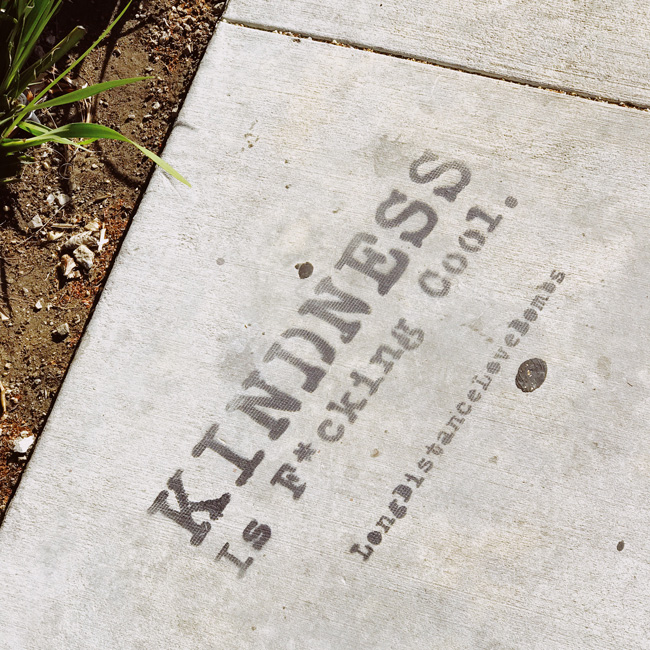
Being nice is good but being kind is better
—
When you went off to first-grade, or to a friend’s birthday party, or to a family event, did your mother remind you to “be nice?” Or maybe when you were playing with the neighbor kids or skirmishing with your siblings, did mom regularly instruct you to “be nice?”
Mine did. It was her frequent mantra (along with “sit up straight” and “stop fidgeting”). While I was often told to be nice, I don’t recall ever being directed to “be kind.” Are they the same thing? I don’t think so.
I’ve been nice most of my life. It’s relatively easy. It doesn’t ask a lot of me.
I can smile at the supermarket checker without really connecting. I can grit my teeth and politely tell the fellow who knocks on my door that we don’t need our house painted. I can allow the car to merge in front of me while also wondering impatiently if the driver knows how to find fourth gear.
Being nice is being polite, tolerant, maybe even generous when it suits us. It doesn’t take much effort, or much gumption.
Being kind might look similar from the outside, but inside, it feels very different.
Being kind is making eye-contact, saying something beyond the superficial to another person, seeking connection. It’s accepting them without judgment and going out of your way to offer assistance or to brighten someone’s day.
Being kind also means taking a risk. Perhaps your effort will be misinterpreted; maybe your kindness will be rejected. Maybe you’ll appear clumsy or awkward. You could be embarrassed. Kindness makes us feel vulnerable — and that’s not a feeling many of us seek out.
Above all, kindness asks us to extend ourselves — to reach out, to be exposed, to open ourselves to ridicule, and to offer who we are to another human without any guarantee that they will like us, accept us, or offer themselves in return. That takes courage.
I’ve heard people scoff at the notion of kindness. I know a few people (very few, thankfully) who see kindness as something to exploit or take advantage of. They think kind people are pushovers, ripe for the picking.
But kindness doesn’t mean weakness — and it isn’t a gullibility to be manipulated.
In the pursuit of justice, kind people will be assertive, tough, and persistent. They won’t, however, be cruel, intolerant, or unscrupulous. Kindness often means standing up for someone who’s being mistreated. Think of the child defending another child who’s being bullied. Or the restaurant patron who stands by the foreign-born stranger who’s being denied service or treated disrespectfully. These actions take courage. They also take confidence.
Summoning the courage to extend kindness isn’t easy. Safety and security are high on Maslow’s Hierarchy for most humans. And even if our kindness doesn’t put us in any physical jeopardy, we risk rejection, judgment, and embarrassment from the action we take.
There are opportunities all around us to both give and receive kindness — if we just pay attention. Some of them may seem small: holding a door for someone, offering our seat on the bus, saying just the right word at just the right time, or perhaps biting back that clever but snarky comment in response to another person’s incivility. And some of them may be large: standing up for someone who is being mistreated, speaking our truth when others are silent, offering assistance to a stranger in need.
There are no small kindnesses.
Each one creates a ripple that spreads beyond our awareness. Whether one extends kindness, receives kindness, or merely witnesses it, the result is the same: it acts as a catalyst for more kindness.
Scottish researcher Dr. David Hamilton reports that kindness spreads like a virus from one person to the next. “When we’re kind,” he says, “we inspire others to be kind, and it actually creates a ripple effect that spreads outwards to our friends’ friends’ friends — to three degrees of separation.” The full impact of our kindness will never be known to us.
The world desperately needs your kindness. Next time you see an opportunity to extend it, claim your courage and start changing the world. That opportunity will come today — if you just look for it.
You may also enjoy reading The Kindness Contagion: Cultivating Lovingkindness in Our Children, by Christopher Willard